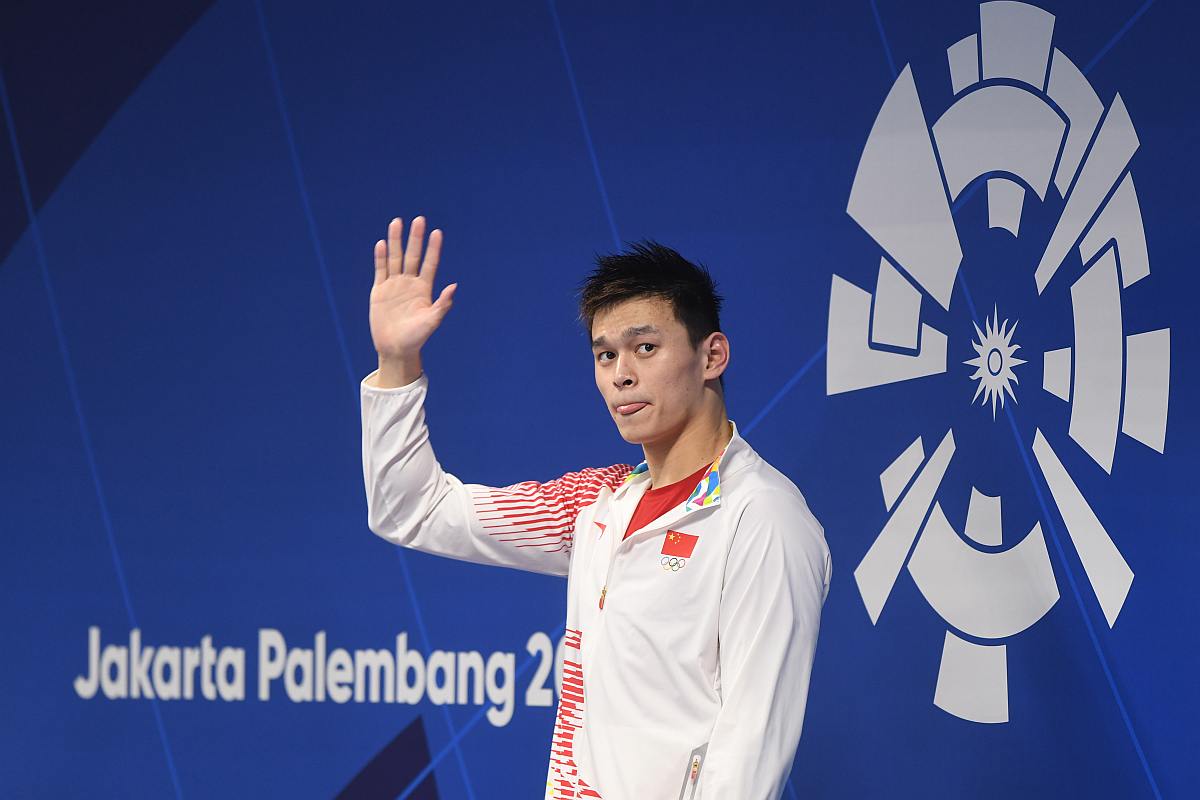FS Misri to visit China this week
In a major step towards normalisation of Sino-India ties, Foreign Secretary Vikram Misri will visit Beijing on 26-27 January for a meeting of the Foreign Secretary-Vice Minister mechanism between the two countries.
Sun also criticised what he called injustice and unfair treatment meted out to Chinese athletes at a public hearing held by the Court of Arbitration for Sport (CAS) in Montreux, Switzerland.

Sun Yang of China. (File Photo: IANS)
China’s Olympic champion swimmer Sun Yang has accused a nurse involved in his anti-doping case of not having the correct credentials and therefore collecting his blood illegally.
“She violated provincial regulations for China’s nurses. Worse, she did not have a valid qualification certificate of specialty and technology or a practicing nurse certificate, and only showed me an expired qualification certificate,” Sun wrote on Chinese social network Weibo, reports Xinhua news agency.
Advertisement
Sun also criticised what he called injustice and unfair treatment meted out to Chinese athletes at a public hearing held by the Court of Arbitration for Sport (CAS) in Montreux, Switzerland on November 15. The Chinese swimmer vowed to defend his right to clear his name.
Advertisement
The 11-hour hearing was brought to CAS by the World Anti-Doping Agency (WADA) against Sun and swimming world governing body FINA, after FINA’s previous decision not to sanction Sun for alleged anti-doping rule violations.
Sun said that on the night of September 4, 2018 when he was tested, he asked three doping officers from the international testing company IDTM to show their authorized certification, documents and valid accreditation, only for them to refuse.
In a picture posted on Weibo, Sun showed two certificates in blue covers: the qualification certificate of specialty and technology, and the practicing nurse certificate.
“According to regulations on China’s nurses, those who practice across geographical areas must go through the relevant registration and filing procedures, otherwise they shall not practice in areas other than where they are registered. If such rules are violated, the relevant medical and health institutions shall make a decision on handling such a case according to the law.”
“The World Anti-Doping Regulations and ISTI standards clearly state that the blood collectors should first comply with the mandatory legal provisions of the country in which the blood collection is conducted,” Sun continued.
“The blood collector had her nurse registration for a hospital in Shanghai, so how could she illegally collect my blood in Hangzhou?” Sun asked.
“The most critical part was that she only showed me an expired qualification certificate of specialty and technology, rather than a valid one, and she also had no practicing nurse certificate.”
“I am very curious to know how the relevant medical and health institutions in Shanghai will deal with the illegal acts of the blood inspector,” Sun continued.
Earlier, one of the three IDTM doping control testers in the Sun Yang case admitted he was not a trained professional Doping Control Assistant (DCA), but a construction worker.
The DCA, who insisted on anonymity, said “he had never been trained as doping control officer”, adding that he was providing temporary help requested by his middle school classmate on November 15, 2018, and knew about the doping test.
“I am always busy with my construction work. I sent my testimony in a written letter to CAS and WADA and was ready to give my words at a video conference before the public hearing, but no one contacted me,” said the DCA.
Advertisement